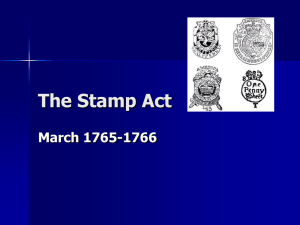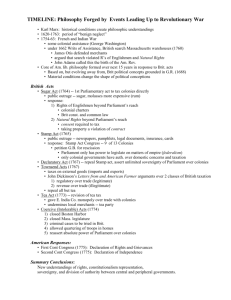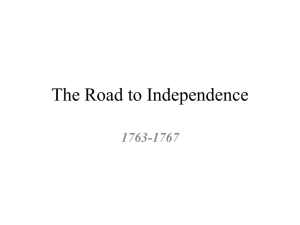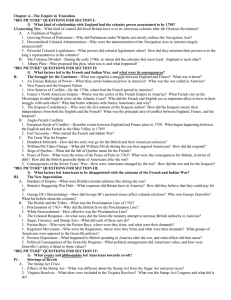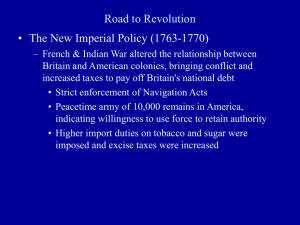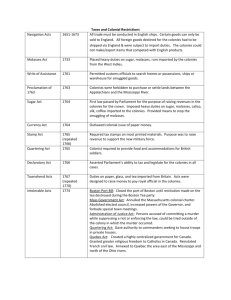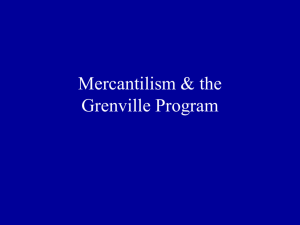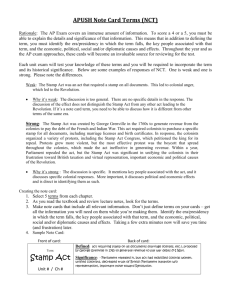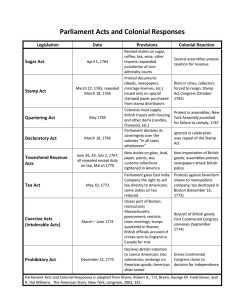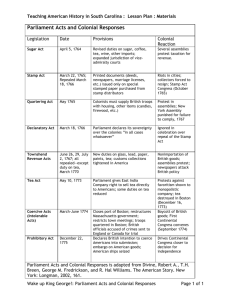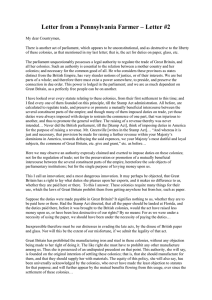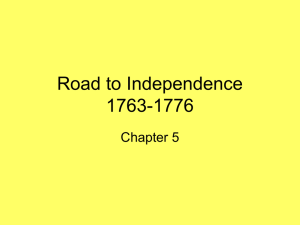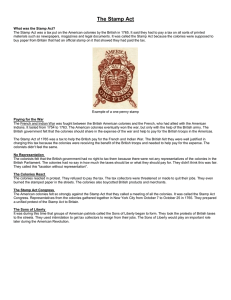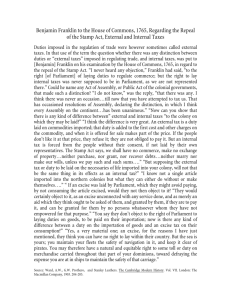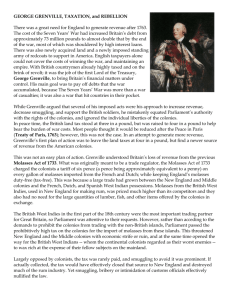The New Imperial Policy on Revenue (1763
advertisement
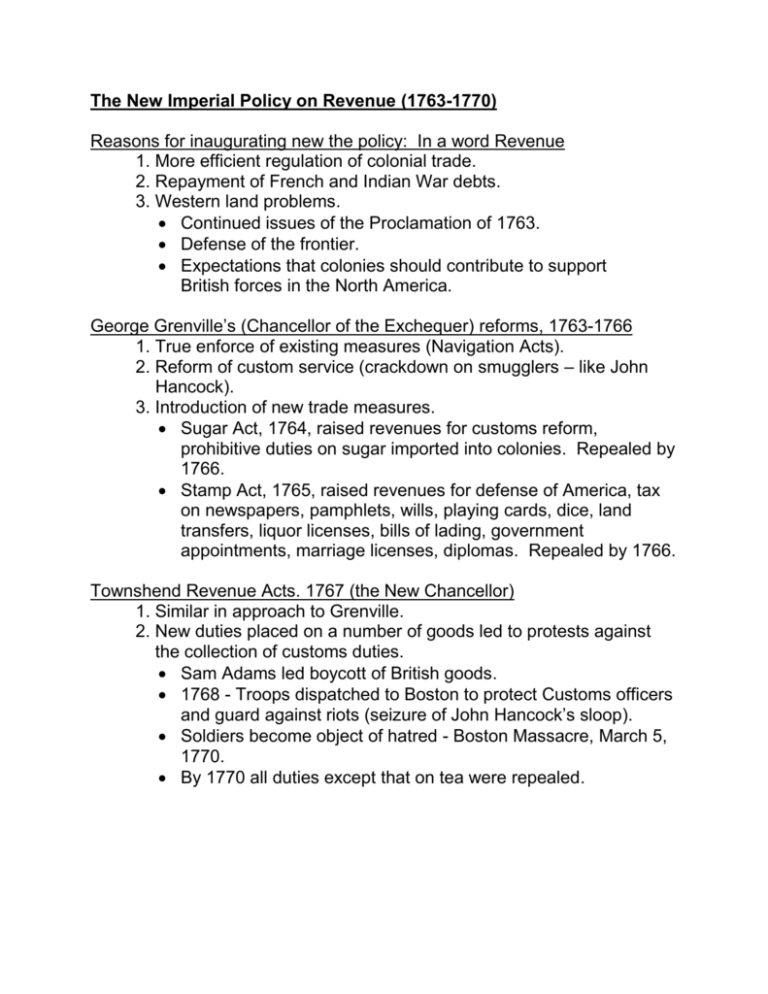
The New Imperial Policy on Revenue (1763-1770) Reasons for inaugurating new the policy: In a word Revenue 1. More efficient regulation of colonial trade. 2. Repayment of French and Indian War debts. 3. Western land problems. Continued issues of the Proclamation of 1763. Defense of the frontier. Expectations that colonies should contribute to support British forces in the North America. George Grenville’s (Chancellor of the Exchequer) reforms, 1763-1766 1. True enforce of existing measures (Navigation Acts). 2. Reform of custom service (crackdown on smugglers – like John Hancock). 3. Introduction of new trade measures. Sugar Act, 1764, raised revenues for customs reform, prohibitive duties on sugar imported into colonies. Repealed by 1766. Stamp Act, 1765, raised revenues for defense of America, tax on newspapers, pamphlets, wills, playing cards, dice, land transfers, liquor licenses, bills of lading, government appointments, marriage licenses, diplomas. Repealed by 1766. Townshend Revenue Acts. 1767 (the New Chancellor) 1. Similar in approach to Grenville. 2. New duties placed on a number of goods led to protests against the collection of customs duties. Sam Adams led boycott of British goods. 1768 - Troops dispatched to Boston to protect Customs officers and guard against riots (seizure of John Hancock’s sloop). Soldiers become object of hatred - Boston Massacre, March 5, 1770. By 1770 all duties except that on tea were repealed. American Discontent 1. JAMES OTIS, The Rights of the British Colonies Asserted and Proved. Response to Sugar Act. An appeal to Natural Rights and the expression of the concept of “no taxation without representation.” 2. STAMP ACT CONGRESS, New York, 1765, 27 delegates from 9 colonies. A unified statement of rights and grievances. that asked for a repeal of the Stamp Act. Important constitutional issues: o Were the colonies represented in Parliament? o Did Parliament have the right to tax the colonists if they had the right to regulate trade? Sons of Liberty use violence to force stamp agents to resign. Parliament repealed Stamp Act (1766) but asserted its rights (with Declaratory Act) to regulate colonies "in all ways whatsoever." 3. NONIMPORTATION ASSOCIATIONS, the most effective of the resistance movements. American merchants organized these to put economic pressure on British exporters. 4. JOHN DICKINSON, Letters From a Farmer in Pennsylvania. Written in opposition to the Townshend Revenue Acts. A series of essays which held that Parliament could regulate colonial trade but not for the purpose of raising revenue. Divergent English and American thoughts upon: 1. Theories of representation (virtual vs. actual). 2. The nature of government, in particular the power of Parliament and or the Crown to regulate (distinction between legislate and tax) colonial affairs. 3. Nature of taxation (direct vs. indirect). 4. The rights of colonists as English subjects. 5. And, eventually the issue of the Natural Rights of Man: Life, Liberty, and Property.
